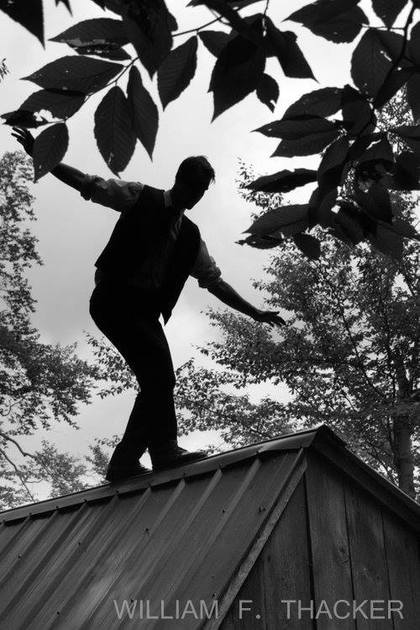 Theatre is a game. The sooner we discard the art, the sooner we stop with depth, and the more we play the game the more spontaneous, the more alive, the more present we are on stage. Every time we open up a performance to a talk back, whether it be to a high school or an invited audience, recitation is always the question asked: "How do you memorize your lines." Lines are the first step, but they are not the only step, an we as actors seem to lose this idea from time to time. Theatre is improv. At every moment of the play, the audience must feel like any choice could be made. A film, is on an inexorable course. Whether its playing in a movie theatre, on a TV, or a computer the path is set. Subconsciously we know there are no other alternatives and we press on to know the answer. Yet, in theatre, each and every moment is alive. Could Julian choose to let Poopay live? Is Hamlet going to kill himself? Is Poe truly going mad? In the rehearsal process, Dan Hodge, the director of Hamlet, wants us all to be aware of need. Now, there are a million and one words for this, pace, urgency, want, but ultimately it separates lines from recitation and improv. The Bard must be heard in such a manner that the characters need the language they are using to express what they are experiencing. The challenge with a famous piece, such as Hamlet, is we all know the monkey. "Get to the monkey," is an improv term I learned a while back. If the audience is waiting to see a monkey, then get to the "fucking" monkey. Do not let your audience get ahead of you. How the hell do you do that with Hamlet? We all know it. We've all been in a room or seen a film and felt, "Will they just kill everyone already?" Even when the play premiered, people already knew the ending. So where does the power of the play come point, on the cutting edge of the blade. We must walk a razor. The audience must feel that every choice, no matter how frantic or contemplative, is another chance for the scales to tip and the play end. If not, then the audience is stuck in a room for four and a half hours waiting around to hear the pretty words (luckily our Hamlet is an hour and a half), and folks, if a play solely rests on the recitation of words, then the actor is dead in the water. To act is to do. We spend an entire play waiting for Hamlet to get off his ass and do something. So often in our own lives we stall, we think, we unpack our heart with words, and we do nothing. Hamlet is damned for stalling his revenge. A play is damned for stalling the action, whether it be because someone is up there "acting" or because the story lost itself in its own "brilliance." So the next time you go to a play, don't ask the actors how learned their lines, ask why they learned their lines, and if they stall to answer, then tell them to "get to the fucking monkey."
0 Comments
Leave a Reply. |
Brock D. VickersThis is the beginning of a new part of life: a habit: an idea: a routine to dig at what makes a man great. Archives
January 2024
Categories |
 RSS Feed
RSS Feed